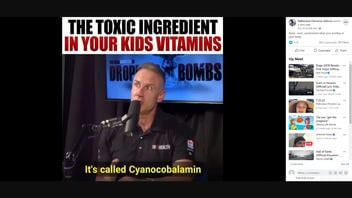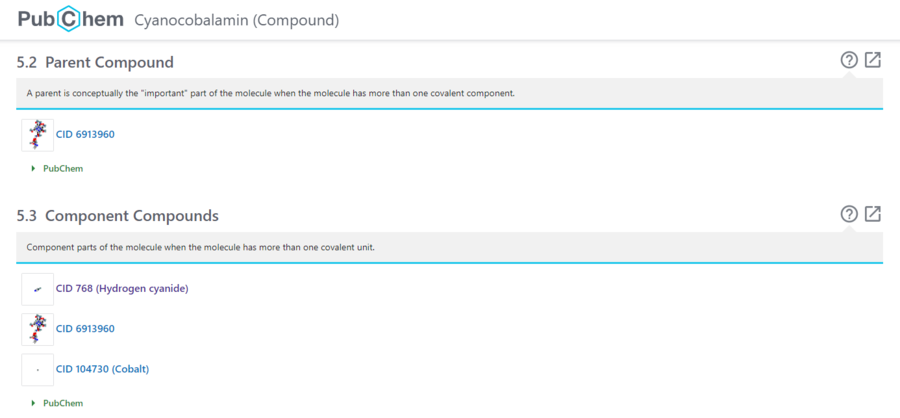
Is the most common form of vitamin B12 in the world "toxic"? No, that's not true: Cyanocobalamin, the vitamin B12 form in question, is used as the most common supplement form of vitamin B12 and is not considered "toxic" by the National Institutes of Health's Office of Dietary Supplements.
The claim appeared in a Facebook reel published on July 28, 2022. The title in the reel is "The Toxic Ingredient In Your Kids Vitamins." and the speaker in the reel opened:
The most common form of B12 in the world is entirely synthetic. We make it from hydrogen cyanide. It's called cyanocobalamin. It's a cyanide-based B12. I mean it's hard to believe that we're allowed to make vitamins out of hydrogen cyanide in this country but we are.
This is what the post looked like on Facebook at the time of writing:
(Source: Facebook screenshot taken on Tue Aug 2 15:31:20 2022 UTC)
According to a fact sheet published by the National Institutes of Health's Office of Dietary Supplements, vitamin B12 -- which is generally considered safe -- is mostly taken in supplement form as cyanocobalamin. The vitamin B12 form is described as the following:
Vitamin B12 is available in multivitamin/multimineral supplements, in B-complex supplements, and in supplements containing only vitamin B12. It is usually in a form called cyanocobalamin. Other common forms are adenosylcobalamin, methylcobalamin, and hydroxycobalamin. Vitamin B12 is also available in a form that's dissolved under your tongue (called sublingual vitamin B12). Research has not shown that any form of supplemental vitamin B12 is better than the others.
In an email sent to Lead Stories on August 3, 2022, a spokesperson for the Office of Dietary Supplements recommended that we compare the National Library of Medicine PubChem pages for cyanocobalamin and hydrogen cyanide. We found that although cyanocobalamin contains hydrogen cyanide as a component compound, it is not the parent compound, which is considered "the 'important' part of the molecule when the molecule has more than one covalent component." This distinction is further explained in the screenshot from the cyanocobalamin PubChem page below:

(Source: PubChem screenshot taken on Wed Aug 3 14:38:44 2022 UTC)
Overall, cyanocobalamin and hydrogen cyanide are different substances. Although cyanocobalamin can cause adverse effects to patients with sensitivity to it, cyanocobalamin itself is not considered harmful.
In an email sent to Lead Stories on August 2, 2022, Richard Bloomer, dean of the College of Health Sciences at the University of Memphis and director of the university's Center for Nutraceutical and Dietary Supplement Research, said of the claim:
... I have not seen any definitive evidence indicating that this form of B12 is harmful when ingested at the dosages that most people would consume within vitamin supplements. This is not the same as if one were to consume actual cyanide, which is what some people are suggesting. Anecdotally, there are many products on the market (energy shots in particular) that contain massive amounts of this form of B12, yet we have not heard of many problems with regular intake. Perhaps this will change over time.
Bloomer also referred our inquiry to Keith Martin, a research assistant professor at the College of Health Sciences at the University of Memphis. We will update this story with any relevant response from Martin.
Other Lead Stories fact checks related to cyanide can be found here.



















